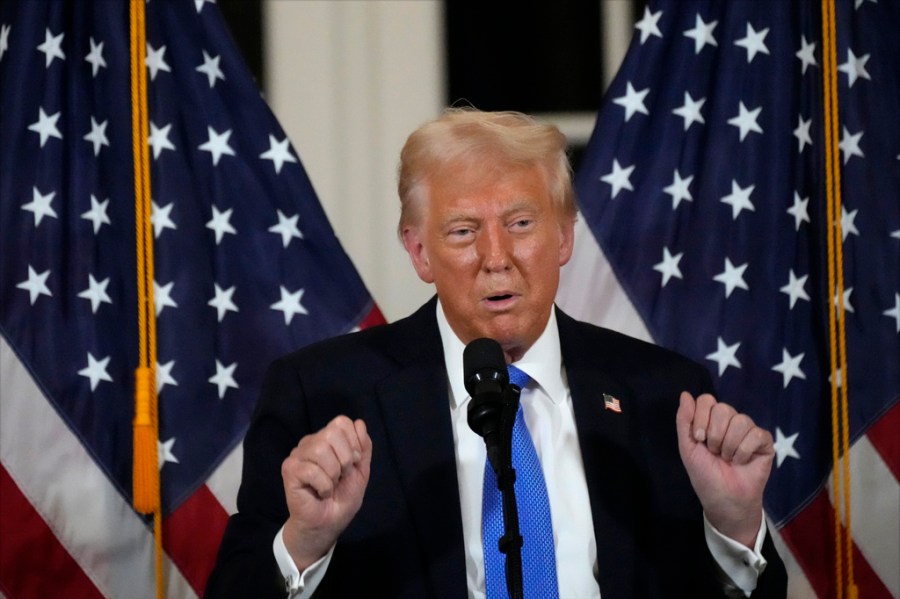
Washington is abuzz these days about what federal programs the second Trump administration will put on the chopping block. Concern for women’s rights, including in U.S. foreign relations, is often mentioned in this context.
We disagree. Here is why.
When then-first lady Hillary Clinton asserted in Beijing that “women’s rights are human rights,” it was widely hailed as a major step forward for women worldwide. It was as if women were finally being recognized as real people and not chattel, with the consequence that U.S. foreign policy was to concern itself with their treatment in all countries, like a beneficent father protecting his frail children everywhere.
No serious thought was given to how this universal concern would further U.S. “hard” objectives such as military might and economic growth. Instead, these pronouncements were largely exhortatory and certainly did not address how this pursuit would benefit American citizens. American foreign policy elites’ concern for global women’s rights was, in effect, “noblesse oblige.”
If this amorphous way of understanding women’s rights were the only way, the new administration would indeed place it toward the bottom of its list of foreign priorities. But there are more focused alternatives to addressing this issue, and President Trump knew this from the outset during his first administration.
One of the most important events on the global women’s rights calendar is the annual Women of Courage Celebration at the U.S. State Department. It is administered in collaboration with the American Women for International Understanding and often presided over by the secretary of State.
In 2017 first lady Melania Trump chose to personally hand out the prizes and embrace the women onstage. This was one of her earliest and best-received public events. The first lady is now once again, more than ever, well positioned to have meaningful impact over the issues she supports.
We believe that women’s rights will continue to be a focus of U.S. foreign policy because they are not a “soft power” issue but a practical one that fits perfectly into the president’s “revolution of common sense.”
First, take defense objectives. President Trump is notably averse to waging hot wars. Yet adversaries must be countered, on his watch as on anyone else’s. What is the alternative to war? Diplomacy, public relations and subversion. It is undeniable that women have successfully practiced diplomacy since the beginning of recorded history, and doubtlessly before then. Women in these roles contribute to less radicalism and fewer overseas conflicts.
Working in the Soviet Union and the Middle East, we have seen firsthand how effective women are on the subversion battleground. In a recent example, it is well known that Syrian women’s organizations were very active in the toppling of President Bashar Assad of Syria (a key U.S. foreign policy goal), without firing a shot. And liberated women double the pool of potential recruits, be they journalists, influencers or spies.
Second, looking at the international economy, it is no secret that women-run businesses, particularly in developing countries, are often more profitable and more nimble than those belonging to men. According to a Boston Consulting Group study, female business owners generate 10 percent more revenue than male owners over five years.
Educated women are more likely to start and grow successful businesses, in struggling societies as in our country. Domestically, women being economically active greatly enhances the production of, and market for, American-made goods.
A poll by the Alliance for American Manufacturing found that Americans across the political spectrum support “Made in America” and “Buy American” policies. As one in four manufacturing leaders in the U.S. are women, there is tremendous opportunity in the years ahead. Dynamic women entrepreneurs help the tide raise all boats, including the boat of the American taxpayer.
Approaching the issue of women’s rights from a practical and common-sense perspective that puts America first is beautifully aligned with America’s new direction under President Trump. We believe that the second Trump administration will continue to emphasize global women’s rights — not as an amorphous matter of good versus evil, but to achieve actionable foreign and domestic policy goals. This includes everything from avoiding costly military interventions to putting more money in U.S. citizens’ pockets.
Tatiana C. Gfoeller was a U.S. diplomat in Bahrain, Belgium, Poland, Saudi Arabia, Russia, the Soviet Union and Turkmenistan. She has taught political science at Georgetown University. Sonia Coman, Ph.D., co-authored the field-defining book, “New Directions in Organizational and Management History” (Berlin: De Gruyter, 2022) and publishes internationally on art and cultural affairs. She has taught a course on ceramics as diplomatic gifts at Columbia University.












